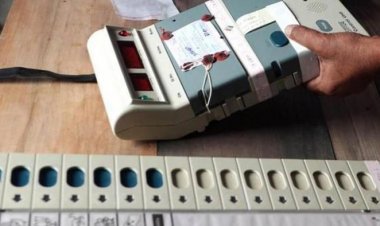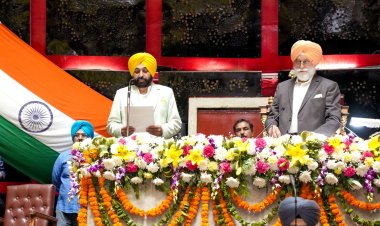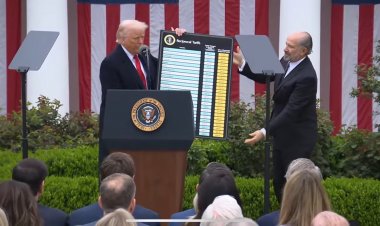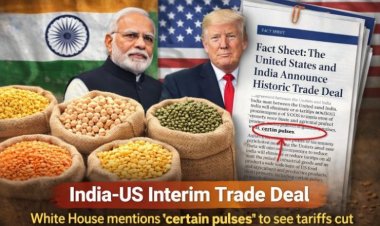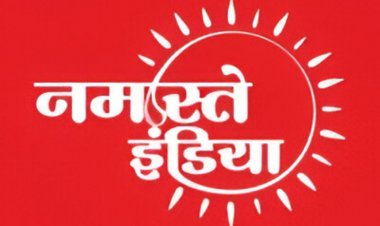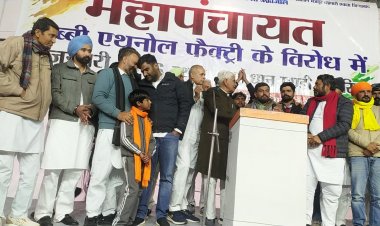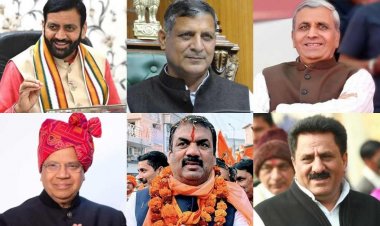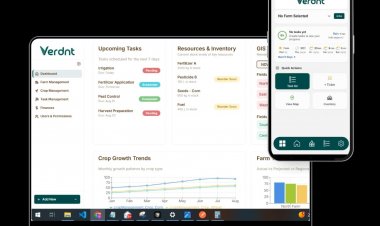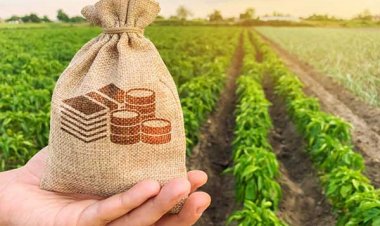Paddy procurement election issue in UP; only 27 per cent procured at MSP so far
As of now, 46.50 lakh tonnes of paddy has been procured at MSP from 6.56 lakh farmers in UP. Thus, even if we assume production equal to that last year, only 27 per cent of the total paddy production has been procured at MSP so far.
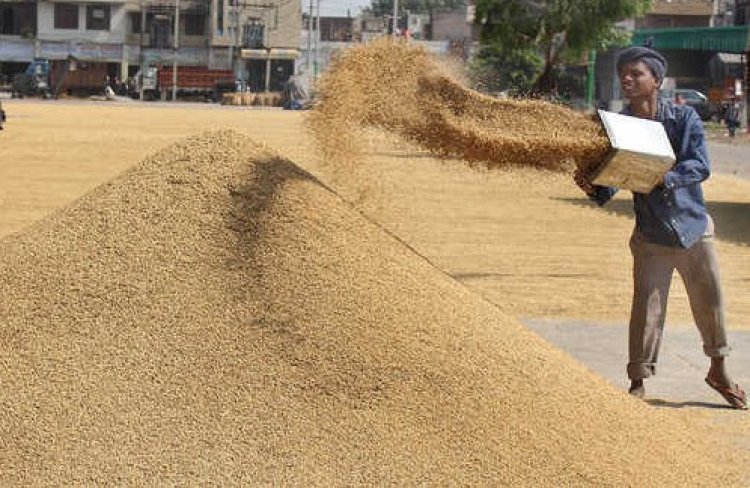
Paddy procurement is turning into a major issue among the farmers of the adjacent states of Uttar Pradesh (UP) and Punjab that are going to the polls. As of now, 46.50 lakh tonnes (lt) of paddy has been procured at Minimum Support Price (MSP) from 6.56 lakh farmers in UP. Thus, even if we assume production equal to that last year, only 27 per cent of the total paddy production has been procured at MSP so far. Less procurement may have an impact on the Assembly elections.
According to figures from the Department of Agriculture, paddy production in the state stood at 169.48 lt in 2019-20 and at 171.36 lt in 2020-21. The production is expected to exceed these figures this year.
One of the major demands of the recent farmers’ movement, which lasted for more than a year, was that the government should either procure the total produce of the farmers at MSP or make such an arrangement that the farmers got MSP wherever they sold their produce. The farmers of western UP were part of the movement.
Vinod Chaudhary, a farmer from the Nandipur village in the Saharanpur district, says, “We have registered on the government portal to sell our paddy. But when it came to procuring the crop, the employees at the paddy centre pointed out that the paddy was deficient in quality and procured only 25 per cent of our produce. We had to sell the rest of the paddy outside.” He said that most of the farmers were meted out similar treatment.
On the other hand, 186.85 lt of paddy has been procured at MSP from 9.24 lakh farmers in Punjab. The farmers have received a payment of Rs 36,623.64 crores. While it is estimated that paddy production in Punjab will exceed 180 lt, more than 100 per cent of paddy has been procured at MSP.
In Chhattisgarh, the Kharif production of paddy is more than 80 lt. As of now, 67.65 lt of it has been procured from 16.90 lakh farmers at MSP. Thus, the state government has procured about 84 per cent of the total paddy production.
Paddy farming has witnessed a record increase in the southern state of Telangana. In 2014-15, the area under paddy cultivation was a mere 12.23 lakh acres, which went up to a record 63 lakh acres in 2021. This increase has come about in the regime of K Chandrashekar Rao, who has been in power since Telangana was formed in 2014. Paddy production is estimated at 148 lt in the state in the 2021 Kharif season. 65.64 lt of paddy has been procured at MSP from 9.67 lakh farmers here. Thus, 44 per cent of the total production has been procured at MSP in the state.
Soran Pradhan, national president of the Kisan Ekta Manch, says, “The government is not procuring paddy as promised. In UP, farmers earlier had problems while registering themselves.”
Adds Pradhan, “Farmers have to wait for long to sell at MSP. And then very few of them are able to sell their produce at MSP at the mandis and procurement centres. This is why farmers have to sell their produce in the markets at very low prices.” He said that farmers were very unhappy with the government and the paddy procurement centres because they had put in too much money and labour in their production.
Hoshiyar Singh, an office bearer of the Bharatiya Kisan Union (BKU), says, “There has been little procurement of paddy at MSP. This has aggravated the troubles of farmers in UP. We have intimated the matter to the government officials associated with the paddy procurement centres and to the people’s representatives. But the government is not paying any heed to the issue. On January 31, we shall give voice to our problem through a dharna by the farmer organizations.”
This is for the first time that farmers are at the centre of the electoral battle between the government and the opposition. Farmer politics has always been aggressive with regard to the State Advisory Price (SAP) of sugarcane in UP. Riding on the farmers’ movement against the farm laws, the farmer organizations had planned the strategy of creating pressure on the state government to increase the cane prices. Their role is now becoming vital in paddy procurement. Telangana, Punjab and Chhattisgarh are leading in terms of procuring the produce from the farmers at MSP. It would, therefore, be interesting to watch which way the unhappy farmers of UP go in the Assembly elections.



 Join the RuralVoice whatsapp group
Join the RuralVoice whatsapp group


















